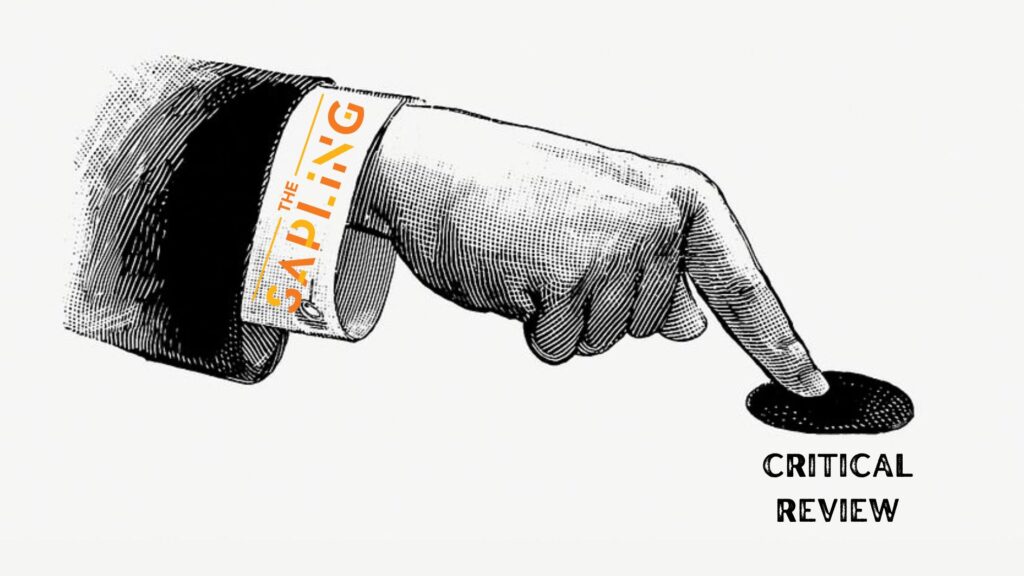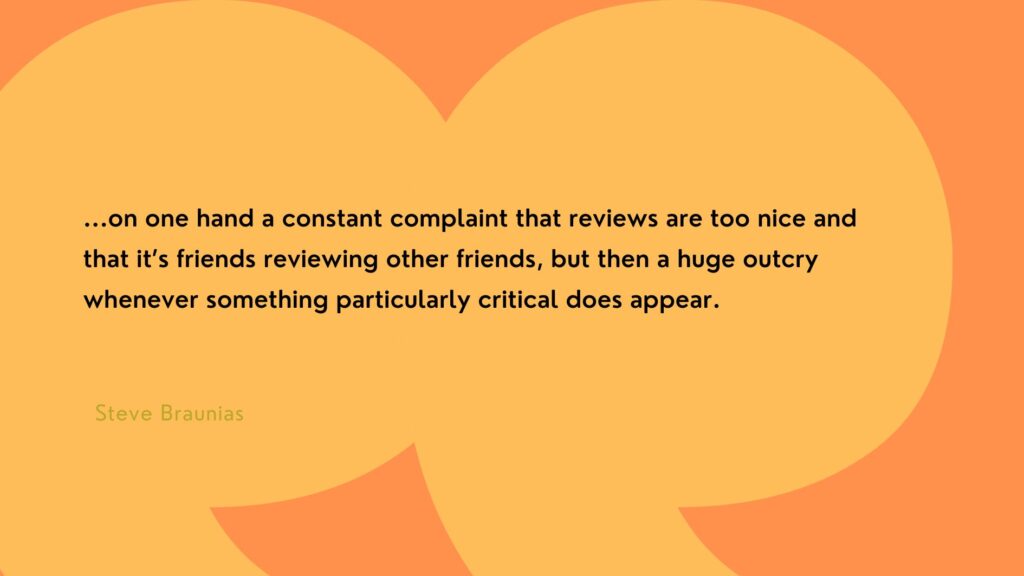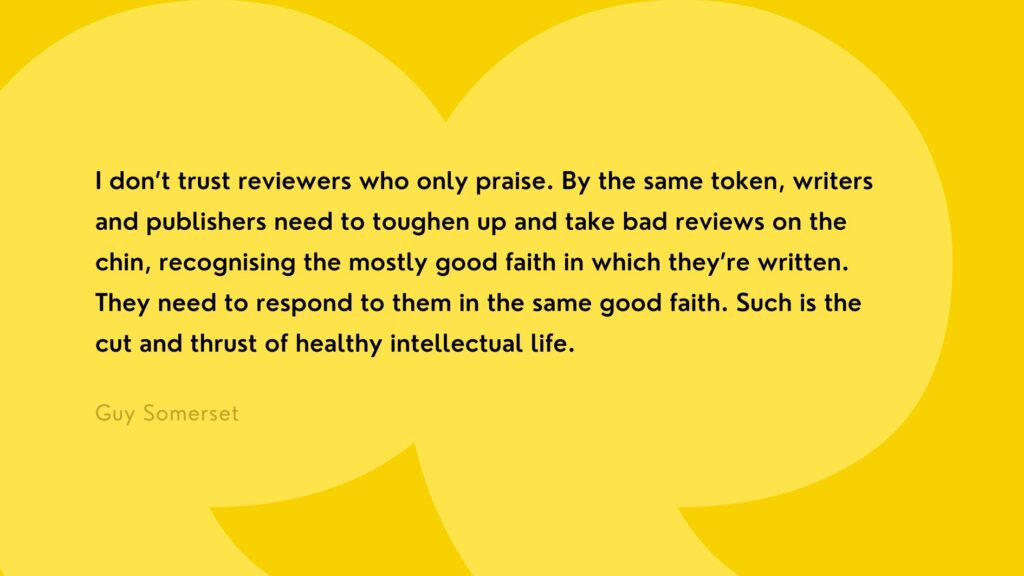The Sapling loves Aotearoa’s thriving children’s book industry. We also believe that a robust reviewing culture can allow it to grow and blossom even further, by providing opportunity for reflection and improvement. Editor Linda Jane Keegan writes about The Sapling’s approach to book reviews, and why we feel it is important we do it that way.

Maybe what I’m about to commit is some kind of media crime, speaking so personally and frankly on a website that relies on our thriving publishing infrastructure to provide us with material. We purport to be objective—we’ll talk more about objectivity later—but also honest, and kind. So, I’m writing this in the kindest and most honest way I know how.
About The Sapling
Since The Sapling was established in 2017, we have published roughly 1000 articles celebrating and discussing our homegrown children’s literature. Roughly a third of these articles have contained reviews, with many of our review articles providing reviews of up to five books. Due to the nature of the New Zealand media industry, The Sapling can sometimes be the only place in which a children’s book is reviewed. This is a responsibility we take seriously.
We have had a recent increase in the amount of correspondence about our reviews, particularly those which had an element of criticism. So let’s talk about reviewing, and why we do it, and why it is important that media outlets like ourselves aren’t too scared to press publish.

Reviewing in Aotearoa
I am not going to go into detail about what a review is and isn’t—that’s for another time—but here is a summary: a review is the opinion of one person, based on their considered reading of a text. As one of our reviewers recently noted, it is also a piece of creative non-fiction, and our reviewers take time to provide the readers of our site with a review that represents their reading. Anyone reviewing a book is going to see it through the lens of their life experiences, not just in writing or publishing, but their personal lives and backgrounds. Two people could have vastly different impressions of the same book, and both be fair.
Our reviewers only know what the publisher, publicist, and author tell them in the book and any accompanying materials. They are not expected to know how an author came to write it, only give their impressions based on how the text comes across, and the context in which it sits. It is a critique, not promotion. Paula Morris covered brilliantly ‘the dark art of reviewing books’ at the launch of the Aotearoa New Zealand Review of Books. She quotes a number of other reviewers—I’ll share two of them here:
[A reviewer] is not a fan boy/girl and isn’t there to make friends. In some cases, they must be prepared to lose them. I don’t trust reviewers who only praise. By the same token, writers and publishers need to toughen up and take bad reviews on the chin, recognising the mostly good faith in which they’re written. They need to respond to them in the same good faith. Such is the cut and thrust of healthy intellectual life.
—Guy Somerset
There has always been a strange tension about reviewing in New Zealand […] on one hand a constant complaint that reviews are too nice and that it’s friends reviewing other friends, but then a huge outcry whenever something particularly critical does appear. I don’t know if any of that matters so long as the reviewing is intelligent and at some length, and is the product of close reading.
—Steve Braunias
It’s a small market here, and opportunities to earn money from writing books are slim, so a negative review could feel like not just an attack on you or your work, but on your sales. Many reviewers are also writers, and I personally am well aware that how I write about other books (or even my own) and their publishers could have an impact that is not in my favour. But having robust discussion about literature is not about currying favour. It’s about giving readers an honest impression of a book, and it serves—we hope—to offer feedback to writers, illustrators, and their publishers so that we can continue to improve the calibre of Aotearoa-New Zealand’s literary canon.

In good faith
We publish in good faith that our reviewers aren’t out there trying to be the book reviewing equivalent of Simon Cowell. These are all people—on both sides—who love and care about reading and creating quality books. How will we ever improve if no one ever says what could be better?
At the beginning I mentioned objectivity. Are reviews truly objective? Arguably, no, and nor do we want them to be. Our About page mentions reviews being objective, but from today we are changing that to fair-minded.
We also mention being honest and kind. Kind does not mean only saying nice things. Kind is honestly giving our opinion—that is our duty to the reader, after all—but without being a dick about it. That does not mean some creators or publishers might not feel hurt by a reviewer’s comments. Reading criticism about your work sucks, for sure. But we would like to think of it as an invitation to step back and reflect on it. Feedback is a gift, which you can choose to ignore, or decide whether it’s worth further consideration.
The Sapling began as a place to celebrate our authors and discuss the books that make up our industry—and we will continue as such. But we need to be allowed to do this in good faith.
We have had a few occasions recently where our integrity as a media outlet has been called into question, with some harsh accusations and threats being made. Dealing with these occasions takes significant mental load, and the people that make up The Sapling do not live in a vacuum, and have other parenting and work responsibilities. While we are fortunate in that CNZ funding allows us to pay our editors, as lead editor, until recently I only received $30/hr to work limited hours. These responsibilities, coupled with my own chronic mental health issues, were not a useful backdrop for managing these occurrences. This meant that some of these were not handled as well as we will endeavour to in the future.
As we recognise this has had a negative impact on some individuals, we apologise to the reviewers for the disservice to their work, and to readers for the disservice to their ability to come to their own conclusions.
The Sapling began as a place to celebrate our authors and discuss the books that make up our industry—and we will continue as such. But we need to be allowed to do this in good faith.
Towards a better future
As a result of our most recent round of funding from CNZ, we have been able to increase the fee and number of hours that I can work for The Sapling (as well as increasing the hourly rate for our editors), which means, among other things, we will have time to implement a standard set of procedures that will inform our approach. While this is still in development, we can say now, that going forward, we will not be entering into discussion about reviews except in the case of factual errors. A reviewer’s impression of the book might not be shared by all readers, but it is still their impression, nonetheless.
The Sapling loves celebrating excellence in the sector and connecting readers to books. But we are also here for meaningful discussion about children’s books and their contexts.
There is so much wonderful support in Aotearoa’s kidlit scene. We see authors and illustrators going to each other’s book launches and pumping them up on social media. We see—and join—the hype around the NZCYA Book Awards, Storylines Notable Books, PANZ Book Design Awards, and the NZ Booklovers Awards. We see the NZSA, SCBWI, Storylines, Read NZ Te Pou Muramura, Coalition for Books, Booksellers NZ, booksellers, libraries, festivals, and more. We see creators reminding each other to register for the PLR payment, even though the more people registered the less money each individual receives (more about PLR and author earnings here and here).
The Sapling loves celebrating excellence in the sector and connecting readers to books. But we are also here for meaningful discussion about children’s books and their contexts. There are so many ways creators, publishers and organisations are going to bat for each other, and where possible, we love being a part of that. But reviewing has a role in the literary industry—and part of that role is to urge those in the industry to do better.

Linda Jane is a writer of picture books, poetry, essays and science. Her background is varied, including work in ecology, environmental education, summer camps, and a community newspaper. She is Singaporean-Pākehā, queer, and loves leaping into cold bodies of water. She was previously lead editor for The Sapling.



